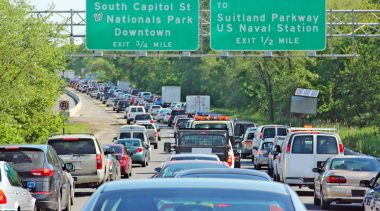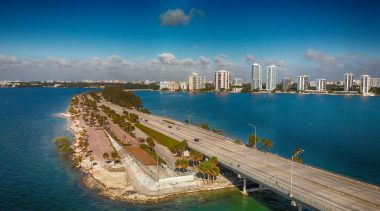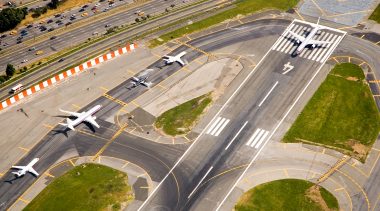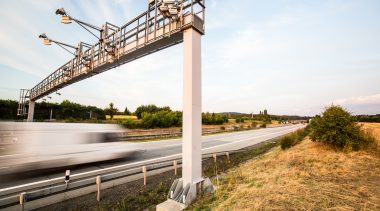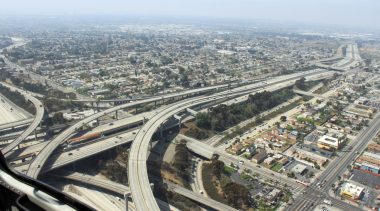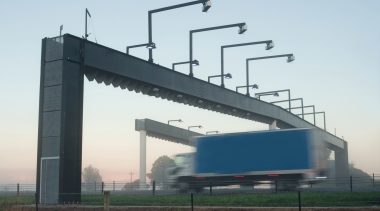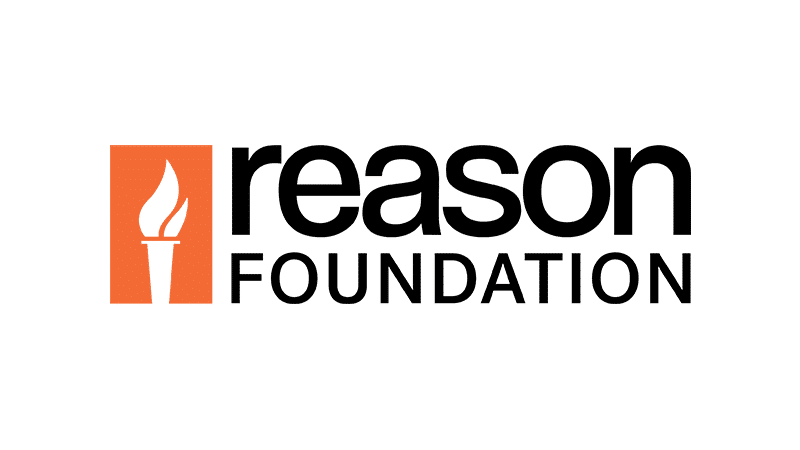Robert Poole is director of transportation policy and Searle Freedom Trust Transportation Fellow at Reason Foundation.
Poole, an MIT-trained engineer, has advised multiple presidential administrations and transportation departments on infrastructure issues.
Surface Transportation
In the field of surface transportation, Poole has advised the Federal Highway Administration, the Federal Transit Administration, the White House Office of Policy Development, National Economic Council, Government Accountability Office, and state Departments of Transportation in numerous states.
Poole's 1988 policy paper proposing privately financed toll lanes to relieve congestion directly inspired California's landmark private tollway law (AB 680), which authorized four pilot toll projects including the successful 91 Express Lanes in Orange County. More than 20 other states and the federal government have since enacted similar public-private partnership legislation. In 1993, Poole oversaw a study that coined the term HOT (high-occupancy toll) Lanes, a term which has become widely accepted since.
California Gov. Pete Wilson appointed Poole to the California's Commission on Transportation Investment and he also served on the Caltrans Privatization Advisory Steering Committee, where he helped oversee the implementation of AB 680.
From 2003 to 2005, he was a member of the Transportation Research Board's special committee on the long-term viability of the fuel tax for highway finance. In 2008 he served as a member of the Texas Study Committee on Private Participation in Toll Roads, appointed by Gov. Rick Perry. In 2009, he was a member of an Expert Review Panel for Washington State DOT, advising on a $1.5 billion toll mega-project. In 2010, he was a member of the transportation transition team for Florida's Governor-elect Rick Scott. He is a member of two TRB standing committees: Congestion Pricing and Managed Lanes.
Aviation
Poole is a member of the Government Accountability Office's National Aviation Studies Advisory Panel and he has testified before the House and Senate's aviation subcommittees on numerous occasions. Following the terrorist attacks of Sept. 11, 2001, Poole consulted the White House Domestic Policy Council and the leadership of the House Transportation & Infrastructure Committee.
He has also advised the Federal Aviation Administration, Office of the Secretary of Transportation, White House Office of Policy Development, National Performance Review, National Economic Council, and the National Civil Aviation Review Commission on aviation issues. Poole is a member of the Critical Infrastructure Council of the Los Angeles Economic Development Corporation and of the Air Traffic Control Association.
Poole was among the first to propose the commercialization of the U.S. air traffic control system, and his work in this field has helped shape proposals for a U.S. air traffic control corporation. A version of his corporation concept was implemented in Canada in 1996 and was more recently endorsed by several former top FAA administrators.
Poole's studies also launched a national debate on airport privatization in the United States. He advised both the FAA and local officials during the 1989-90 controversy over the proposed privatization of Albany (NY) Airport. His policy research on this issue helped inspire Congress' 1996 enactment of the Airport Privatization Pilot Program and the privatization of Indianapolis' airport management under Mayor Steve Goldsmith.
General Background
Robert Poole co-founded the Reason Foundation with Manny Klausner and Tibor Machan in 1978, and served as its president and CEO until the end of 2000.
He was a member of the Bush-Cheney transition team in 2000. Over the years, he has advised multiple presidential administrations on transportation policy.
Poole is credited as the first person to use the term "privatization" to refer to the contracting out of public services and is the author of the first-ever book on privatization, Cutting Back City Hall, published by Universe Books in 1980. He is also editor of the books Instead of Regulation: Alternatives to Federal Regulatory Agencies (Lexington Books, 1981), Defending a Free Society (Lexington Books, 1984), and Unnatural Monopolies (Lexington Books, 1985). He also co-edited the book Free Minds & Free Markets: 25 Years of Reason (Pacific Research Institute, 1993).
Poole has written hundreds of articles, papers, and policy studies on privatization and transportation issues. His popular writings have appeared in national newspapers, including The New York Times, The Wall Street Journal, USA Today, Forbes, and numerous other publications. He has also been a guest on network television programs such as Good Morning America, NBC's Nightly News, ABC's World News Tonight, and the CBS Evening News. Poole writes a monthly column on transportation issues for Public Works Financing.
Poole earned his B.S. and M.S. in mechanical engineering at the Massachusetts Institute of Technology (MIT) and did graduate work in operations research at New York University.
-
Examining Claims About Induced Demand, Adding Road Capacity and Traffic Congestion
The “iron law of roadway congestion” isn’t.
-
New Study Calls for Major Rethinking and Reorganization of U.S. Space Policy
The plan would shift NASA’s role to primarily research and exploration, while enabling the private sector to develop a viable space industry.
-
Finding the Money to Fix and Modernize Southern California’s Interstates
Issuing long-term revenue bonds backed solely by toll revenues would generate the money for interstate reconstruction projects in major cities like Los Angeles to get underway now.
-
Miami Toll Legislation Could Hurt State Highway Funding
Those who favor cutting back on tolling ignore a looming threat to highway funding.
-
Rebuilding and Modernizing Interstates Means Changing the Way We Pay For Them
Everyone warns America’s highways are crumbling. The best way to save them is shifting from gas taxes to per mile charges.
-
How to Pay for the Road and Highway Projects Louisiana Needs
Public-private partnerships are especially well-suited to transportation megaprojects.
-
Raising Money for Southern Nevada Infrastructure Improvements
Clark County, Nevada, is an American success story. But the metro area's infrastructure has failed to keep pace.
-
Estimated Values Of Selected U.S. State and Local Infrastructure Assets
There are numerous opportunities for asset recycling by U.S. cities, counties and states.
-
How to Meet Southern California’s Large and Expensive Infrastructure Needs
California’s infrastructure needs are large and expensive enough that it will take novel ideas to address them
-
How to Make Highways and Airports Pay
State and local governments are sitting on hundreds of billions of dollars in aging but revenue-generating infrastructure assets.
-
The Timeline for Self-Driving Cars and Shared Mobility May Take Longer Than We Think
Examining the long-term future of automated vehicles, electric vehicles and shared mobility.
-
Rethinking California’s Highways as Public Utilities
It’s not hard to see that there is something fundamentally wrong with the way we fund and manage highways.
-
Viewing Managed Lanes as Business Entities Is Key to Funding Major Highway Projects
Maximizing revenue, consistent with public-sector traffic management and throughput goals, will be essential to financing these megaprojects.
-
Revenue-Risk Concessions Are a Preview of a Future Highway Utility Industry
Highways are a vital public utility, but are not funded and operated like any of our other utilities.
-
It’s Time to Rethink America’s Failing Highways
Our nation’s major roads are effectively a utility like any other. It’s time we treated them as such.
-
A Truck-Friendly Approach to Tolling and Improving Highways
The most important provision is that the new tolls would be dedicated—by law—solely to the capital and operating costs of the rebuilt and modernized Interstates.
-
Replacing Per-Gallon Taxes With Per-Mile Charges Is the Best Path Forward
The transition from per-gallon to per-mile will be a major shift in transportation funding.
-
Time to Separate the ATO from FAA Safety Regulation
(Article by Langhorne Bond and Robert Poole for The Journal of Air Traffic Control, Spring 2010, updated March 2018)

